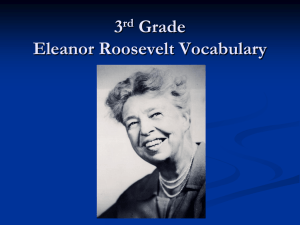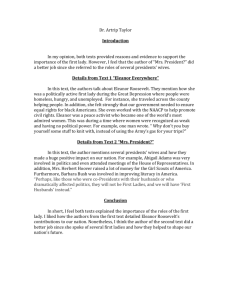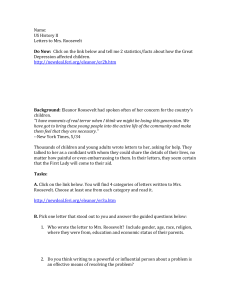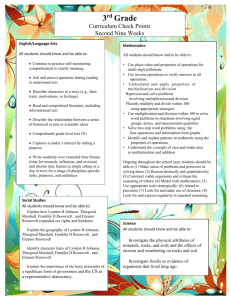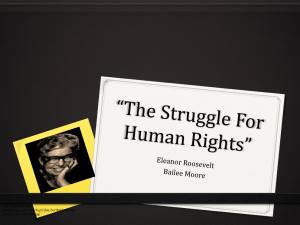Roosevelt
advertisement
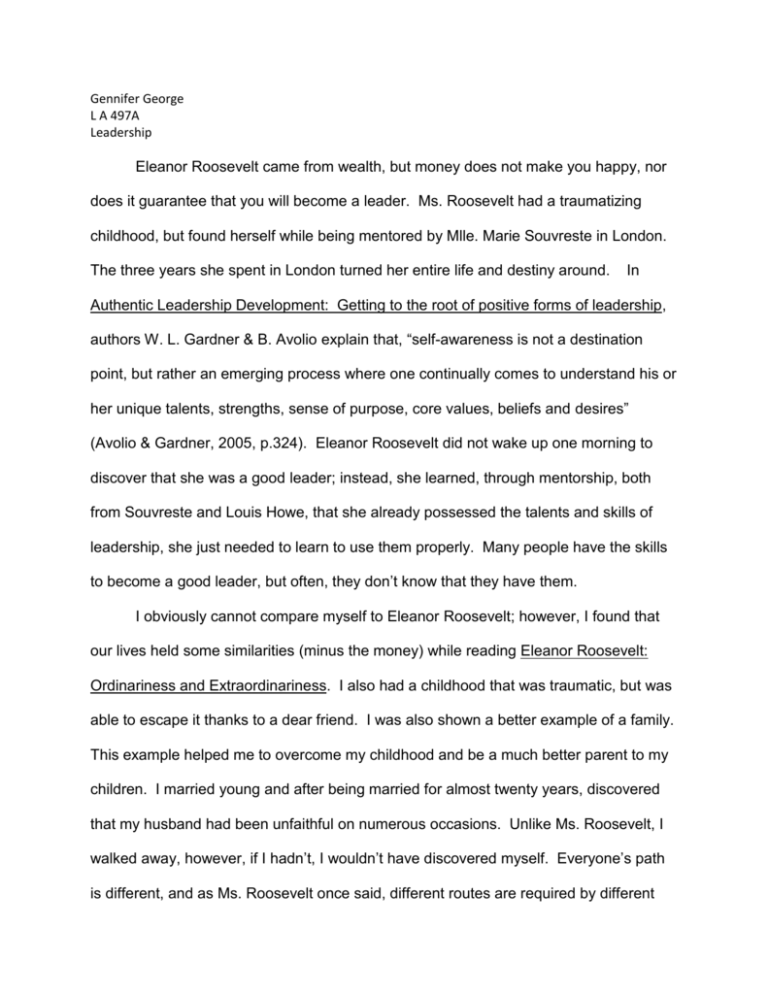
Gennifer George L A 497A Leadership Eleanor Roosevelt came from wealth, but money does not make you happy, nor does it guarantee that you will become a leader. Ms. Roosevelt had a traumatizing childhood, but found herself while being mentored by Mlle. Marie Souvreste in London. The three years she spent in London turned her entire life and destiny around. In Authentic Leadership Development: Getting to the root of positive forms of leadership, authors W. L. Gardner & B. Avolio explain that, “self-awareness is not a destination point, but rather an emerging process where one continually comes to understand his or her unique talents, strengths, sense of purpose, core values, beliefs and desires” (Avolio & Gardner, 2005, p.324). Eleanor Roosevelt did not wake up one morning to discover that she was a good leader; instead, she learned, through mentorship, both from Souvreste and Louis Howe, that she already possessed the talents and skills of leadership, she just needed to learn to use them properly. Many people have the skills to become a good leader, but often, they don’t know that they have them. I obviously cannot compare myself to Eleanor Roosevelt; however, I found that our lives held some similarities (minus the money) while reading Eleanor Roosevelt: Ordinariness and Extraordinariness. I also had a childhood that was traumatic, but was able to escape it thanks to a dear friend. I was also shown a better example of a family. This example helped me to overcome my childhood and be a much better parent to my children. I married young and after being married for almost twenty years, discovered that my husband had been unfaithful on numerous occasions. Unlike Ms. Roosevelt, I walked away, however, if I hadn’t, I wouldn’t have discovered myself. Everyone’s path is different, and as Ms. Roosevelt once said, different routes are required by different people in order to find “things about yourself that will add to your confidence and competence as a leader” (Gerber, 200, p.277). Walking away from the love of my life was emotionally crippling, however, it was necessary for me to move forward. At eighteen, I had wanted to be a lawyer, but at forty, all I had become was a wife, mother, and secretary. Like Eleanor Roosevelt, “I really grew up that year.” (Gardner & Laskin, 1995, p.188). Eleanor Roosevelt overcame very traumatic events throughout her lifetime. Her husband cheated on her, and she chose to remain married to him. Her husband became extremely ill and rather than let him remain an invalid, she worked hard to bring him back to health so that he could continue his political career. Rather than use these tragic events as an excuse for failures in her life, she used them to pull herself up and become the person that she wanted to be. Works Cited Avolio, B., and W. Gardner. "Authentic Leadership Development: Getting to the Root of Positive Forms of Leadership." The Leadership Quarterly 16.3 (2005): 315-38. Print. Gardner, Howard, and Emma Laskin. "Eleanor Roosevelt: Ordinariness and Extraordinariness." Leading Minds: An Anatomy of Leadership. New York, NY: Basic, 1995. 183-202. Print. Gerber, Robin. Leadership the Eleanor Roosevelt Way: Timeless Strategies from the First Lady of Courage. New York: Prentice Hall, 2002. Print.

